Road World Championships 2021: Five things to look out for in the men's road race
Van Aert the favourite and the next generation of Brits - keep your eye on these moments
Van Aert the favourite as part of strong Belgium line-up
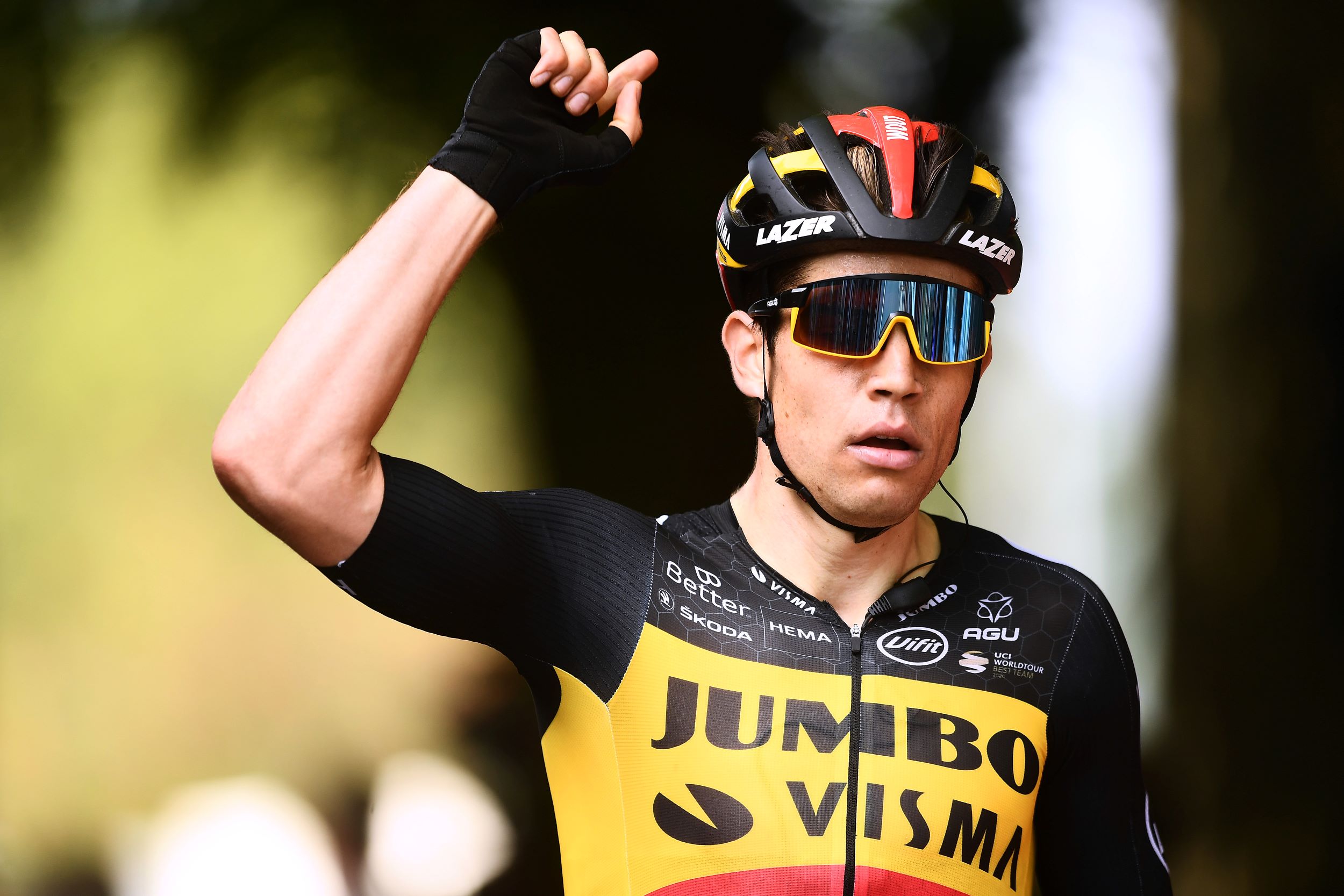
Wout van Aert
Such is Wout van Aert’s versatility that he’d be a favourite for pretty much any World Championships course, but it just so happens that he’s especially well suited to the 2021 race. Not only does its punchy parcours appear to strike the ideal balance between being tough enough to drop the riders who might compete with him in a sprint with not being tough enough for the superior climbers to drop him, it’s also being held in his home region of Flanders, where the local fans will roar him on to victory.
Better yet, Van Aert has a very strong Belgian team to support him. Van Aert was also a top favourite for Olympic gold in Tokyo, but, despite clearly having the legs to win, found himself marked out of the finale with not enough team-mates to help chase down moves in the final stages.
Although he’ll once again be heavily marked (having won four stages and the overall at the Tour of Britain, plus silver on Sunday’s time trial, his form marks him out as the clear favourite), the larger team sizes available at the Worlds means he has an assortment of quality Classics specialists. The likes of Tiesj Benoot, Yves Lampaert and Milan-San Remo winner Jasper Stuyven able to assist him in the business end of the race, and esteemed work-horses Tim Declercq and Victor Campenaerts are primed to control the early stages of the race.
Then there’s Remco Evenepoel, who ought to be an invaluable asset for the Belgian team. His presence will take the pressure off Van Aert, whether by going out on the attack himself and causing panic among the other teams, aware of the threat he poses if allowed a gap; or by sticking with Van Aert and pacing him, functioning as an ideal super-domestique by ensuring Van Aert doesn’t have to use up precious energy marking every attack himself.
In a race as unpredictable and hotly contested as the Worlds, the favourite’s tag is often more a curse than a blessing,
But the circumstances certainly look very bright for Van Aert, who is determined to at last win a Worlds gold having landed a silver in each of his last three appearances.
Doubts surround other two members of ‘the big three’
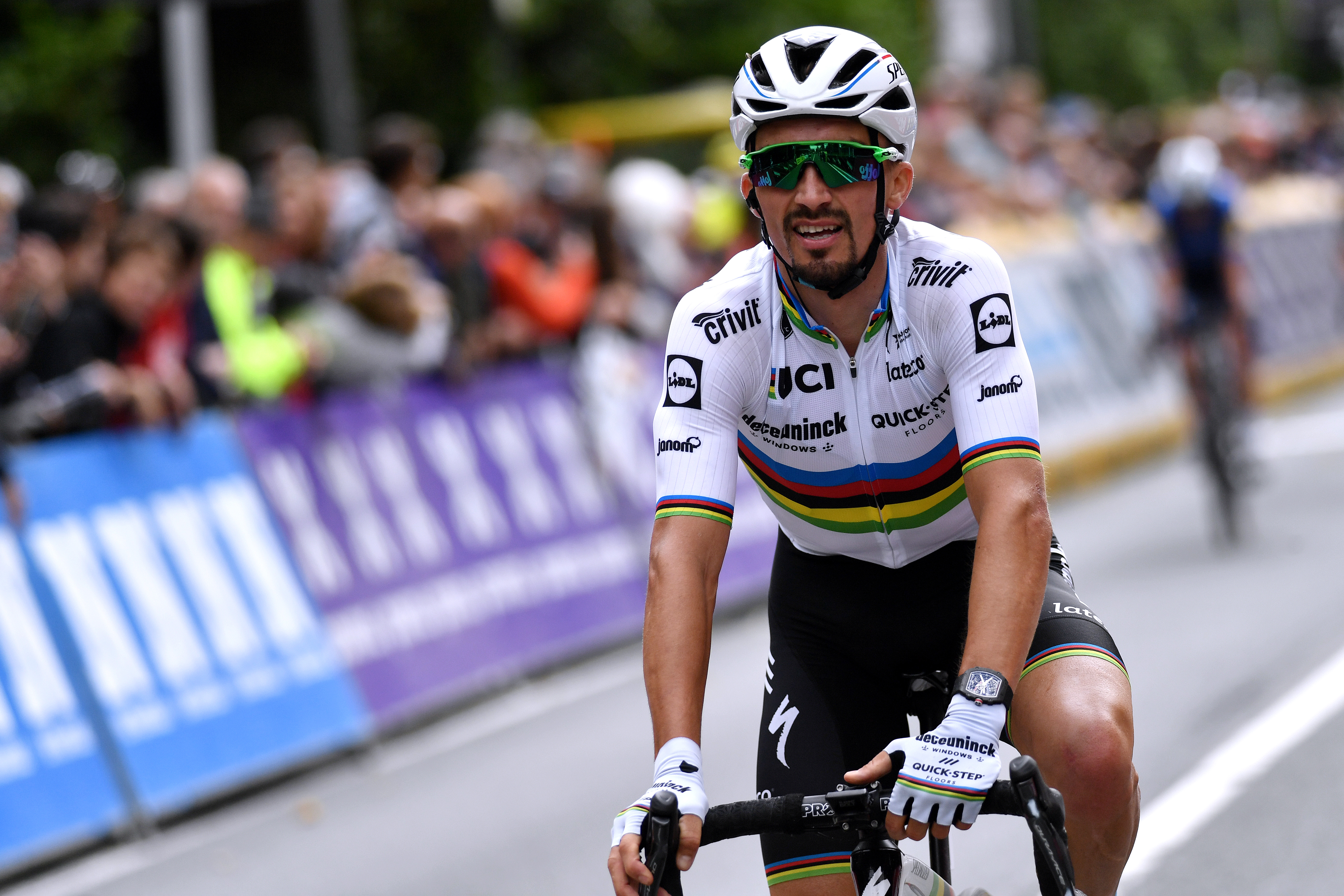
Julian Alaphilippe
Back in spring, all the talk was of ‘the big three’ who time and time again emerged as the strongest riders at the spring classics: Van Aert, Mathieu van der Poel, and Julian Alaphilippe.
Get The Leadout Newsletter
The latest race content, interviews, features, reviews and expert buying guides, direct to your inbox!
These three remain probably the three most purely talented riders taking part in Flanders, but unlike Van Aert, there are doubts about whether Van der Poel or Alaphilippe have the form to win the rainbow jersey.
Van der Poel’s situation is especially concerning. His participation at the Worlds has been uncertain in recent weeks, and although he has been confirmed in the Dutch line-up, whether or not he has the form to compete for victory is a whole other matter. Victory on his comeback appearance at Antwerp Port Epic was certainly encouraging, but that remains one of just three days racing he has had since his dramatic fall at the Olympics mountain bike race, which is far from ideal preparation for a race as long and arduous as the Worlds.
Alaphilippe’s prospects certainly look brighter, but he was well and truly defeated by Van Aert at the Tour of Britain, who took four stages to the Frenchman’s zero. Still, if he’s continued to build his form in training since then, then a defence of his title is certainly possible.
For the sake of the race, here’s hoping both riders can regain their top form in time, as a renewal of their three-way rivalry with Van Aert could make Sunday’s race an all-timer.
Full-strength teams to rival Belgium
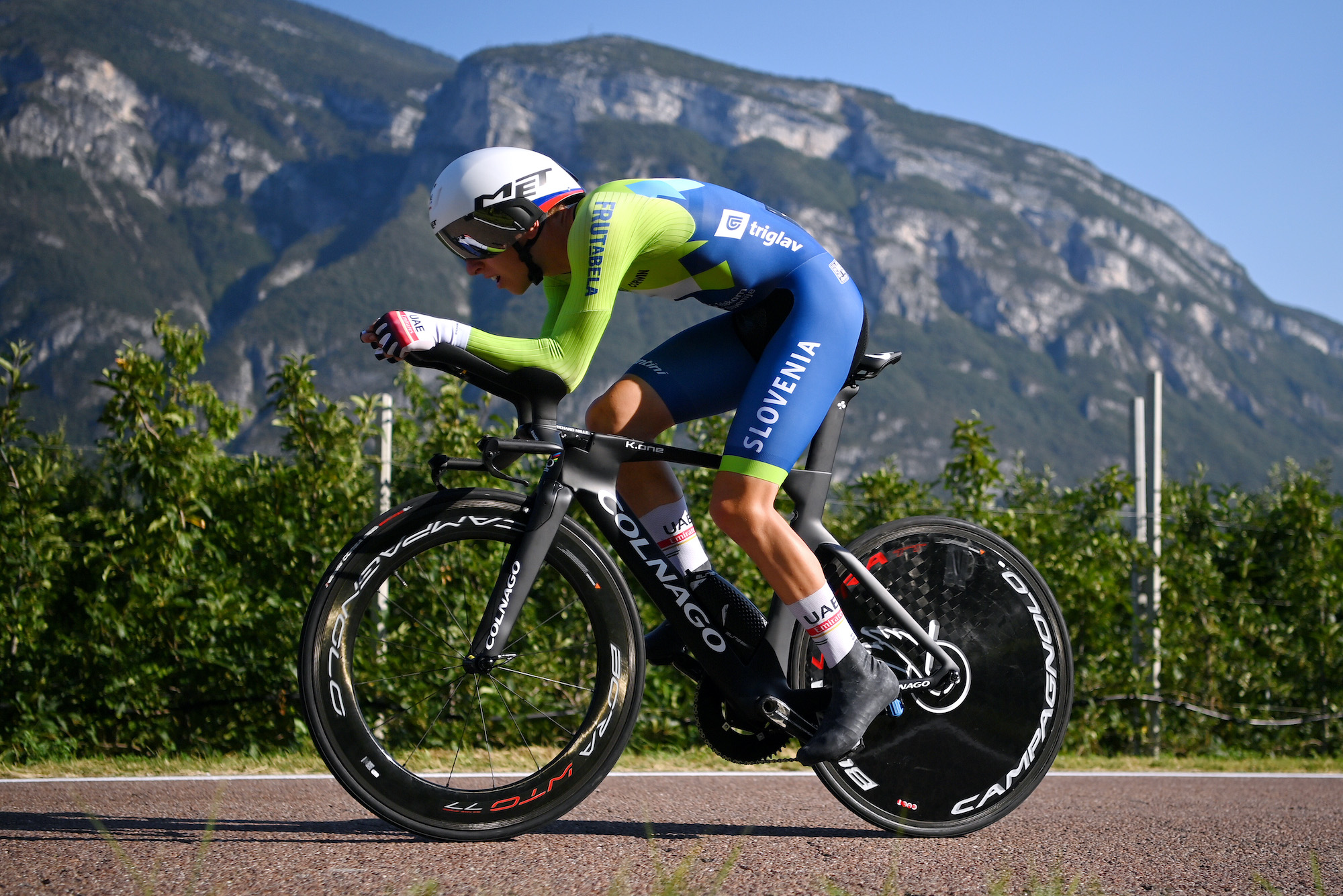
Tadej Pogacar at the 2021 European Championships
As well as Van Aert’s Belgium, Van der Poel’s Netherlands and Alaphilippe’s France, six other teams will line-up with the maximum contingent of eight riders.
Of those six, the Italian and the Slovenian line-ups look especially formidable. Although they have not yet confirmed their exact line-up, the Italian squad is chock-full of exactly the kind of sprinter-cum-classics contenders that are a perfect fit for the Worlds, including Yorkshire silver medalist Matteo Trentin and Giacomo Nizzolo. Their main man though appears to be Sonny Colbrelli, who approaches the Words in career-best form having finished either first or second in all but one of his last seven races, including victory at the European Championships.
Slovenia’s multiple Grand Tour winning pair of Tadej Pogačar and Primož Roglič need no introduction, though given the parcours, it might be their less famous teammate Matej Mohorič who leads the team, especially given his aptitude for long races like the World Championships, and current hot streak that has seen him place runner-up at the Benelux Tour, Tour of Poland and San Sebastian classic.
Of the other teams, Colombia’s squad of climbers is unlikely to make much of an impression on the terrain of Flanders, while Spain’s team is as weak as it’s ever been for a World Championships, with outside bets Alex Aranburu and Ivan García appearing to be their best bets.
In what’s been an excellent year for the nation, Denmark look very strong, with Tour of Flanders winner Kasper Asgreen and 2019 World Champion Mads Pedersen making for a mouth-watering duo, and three-time Vuelta stage winner Magnus Cort and recent back-to-back winner of Italian semi-classics Michael Valgren both in red hot form. And finally Australian have the ever-dependable former silver and bronze medalist Michael Matthews among their eight-man roster, along with Caleb Ewan, who could be an intriguing dark horse if he can return to the climbing form that saw him place second at Milan-San Remo earlier this year.
Under-the-radar contenders from the less-fancied nations
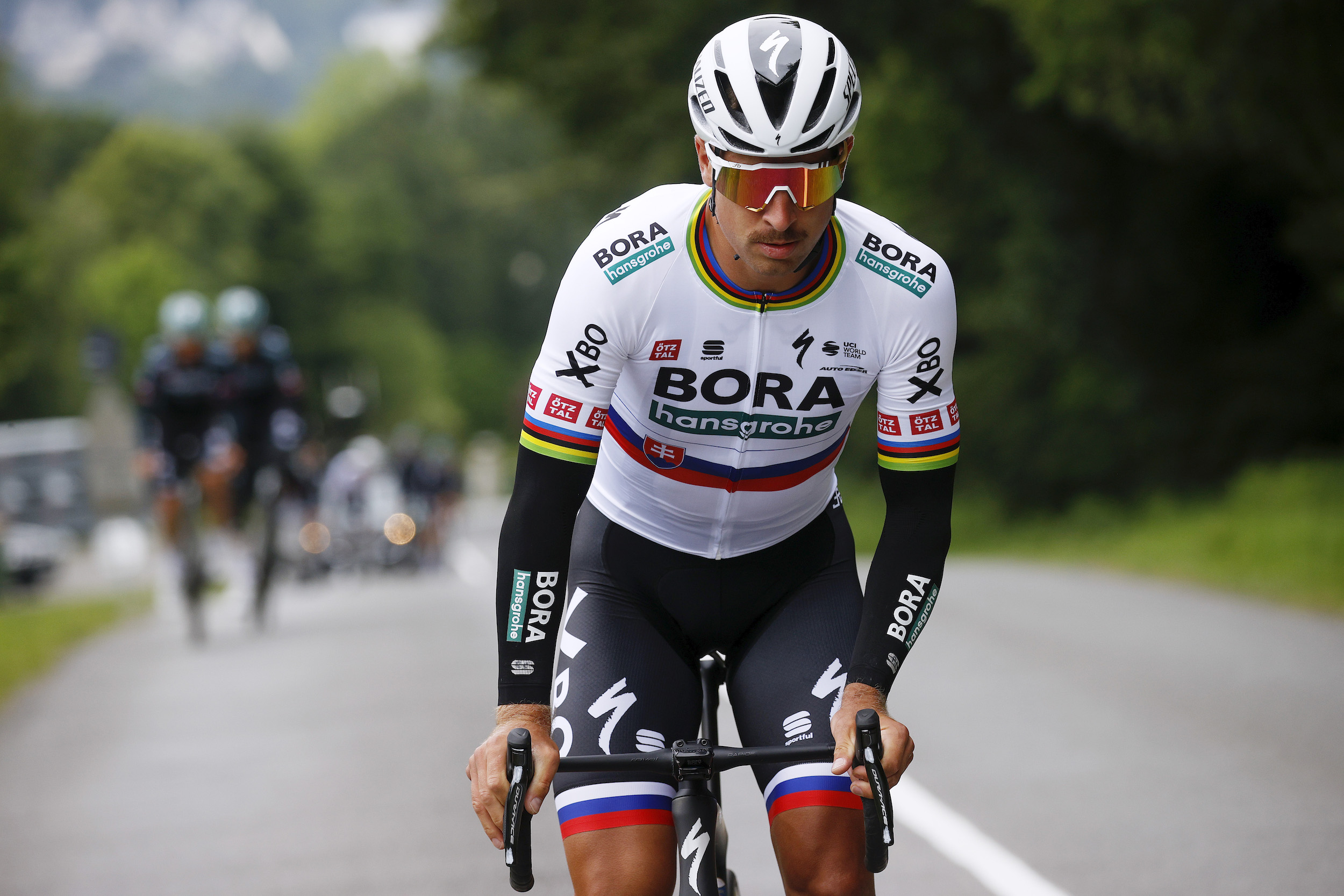
Peter Sagan in the warm up rides for the Tour de France 2021
Peter Sagan’s three consecutive victories between 2015-2017 riding for Slovakia proved that you don’t necessarily have to be a part of one of the major cycling nations with lots of quality domestiques to support you to win the World Championships.
Sagan will be one of just four riders taking part for Slovakia this year, and, although he lacks the form he had prior to his previous three victories, he’ll relish going under the radar, and is always a threat in the event of a sprint finish.
Michal Kwiatkowski also won a Worlds in 2014 as part of a modest Polish team, but an unremarkable showing at Sunday’s time trial suggests he is unlikely to repeat that success this year. He’ll have five riders to assist him, which although puts him at a disadvantage against the top nations, could still be enough to assist him in taking a medal.
The same applies for several of the other outside favourites, including last year’s bronze medalist Marc Hirschi (Switzerland), who has been riding himself into something like his form of last year; and Germany’s Max Schachmann, though he appeared some way of his best form at the recent Vuelta a España.
Portugal’s Joao Almeida, by contrast, has been of scorching form of late, winning overall titles at the Tours of Poland and Luxembourg, and has the punchy to potentially make up for his lack of experience riding in Flanders. And one rider for whom a lack of experience in this region will certainly not be a problem is Alexander Kristoff (Norway), a wily veteran whose past record and recent form (including wins at the Deutschland Tour and a podium at Eschborn-Frankfurt) means he can’t be written off from claiming what would be a first ever rainbow jersey, one of the few things missing on his palmarès.
A new generation of stars line-up for Great Britain

Tom Pidcock
Even in the recent golden age of British cycling, the nation hasn’t produced many top one-day specialists. Mark Cavendish of course won the 2011 World Championships on a flat route in Copenhagen, but most years Britain has not had a major candidate for the Worlds.
That looks set to change with the new generation coming through. Although stalwarts Luke Rowe, Ben Swift and Cavendish himself are all set to ride, Britain’s best hopes probably lie with two riders aged between 22 and 23.
The 22-year-old is Pidcock, who was one of the most impressive riders of the spring, during which time he won De Brabantse Pijl, which features many of the same climbs as on the course in Flanders. If he had the form of the sprint Pidcock would be among the top favourites, but his lethargic displays post-Olympic gold suggests he’s off the pace, and he’d need a big upturn in form to be a medal contender.
Instead, Ethan Hayter has emerged as Britain’s top man. The 23-year-old has enjoyed a stunning rise recently, picking up multiple wins at pro-continental level before going toe-to-toe with two of the top rainbow jersey contenders, Wout van Aert and Julian Alaphilippe, at the Tour of Britain.
He’ll have to contend with a much longer distance at the Worlds road race, for which his young legs are not used to, but the way he managed to finish eighth on his elite World Championships debut in the time trial on Sunday suggest he might be able to make the leap. Whatever happens, it’ll be a valuable learning experience for Britain’s latest rising star.

Thank you for reading 20 articles this month* Join now for unlimited access
Enjoy your first month for just £1 / $1 / €1
*Read 5 free articles per month without a subscription

Join now for unlimited access
Try first month for just £1 / $1 / €1
Stephen Puddicombe is a freelance journalist for Cycling Weekly, who regularly contributes to our World Tour racing coverage with race reports, news stories, interviews and features. Outside of cycling, he also enjoys writing about film and TV - but you won't find much of that content embedded into his CW articles.
-
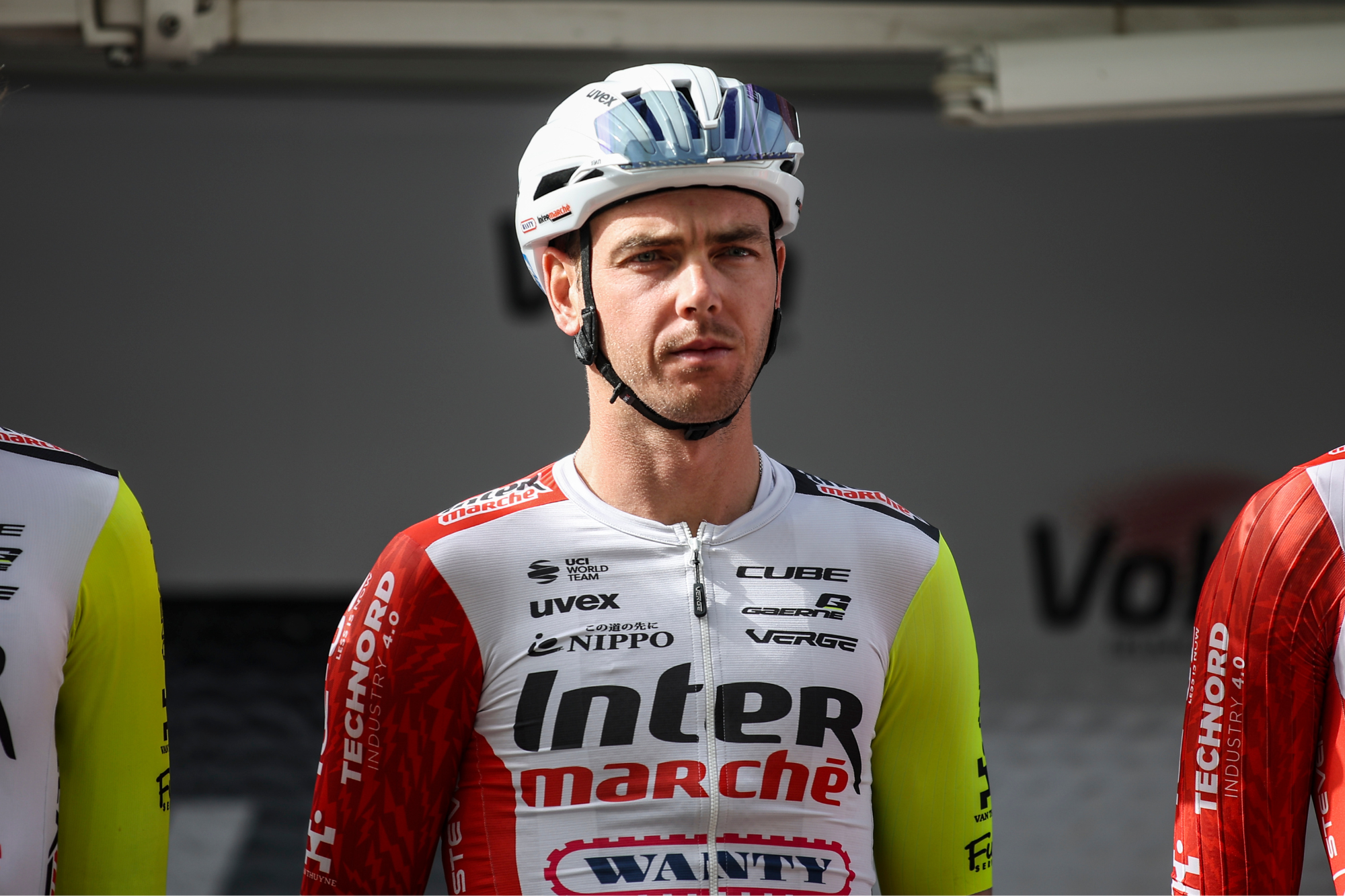 Giro d'Italia rider almost wiped out by goat: 'Albania's great – just watch out for the goats!'
Giro d'Italia rider almost wiped out by goat: 'Albania's great – just watch out for the goats!'Dion Smith of Intermarché-Wanty confirmed it was the first time that a goat had tried to knock him off his bike.
-
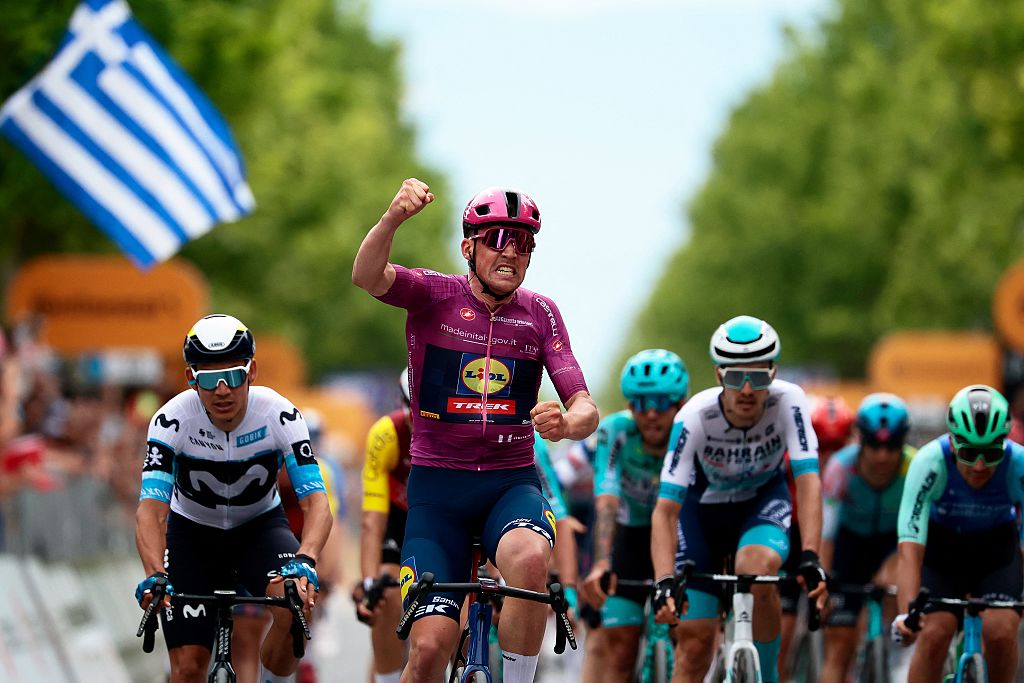 Mads Pedersen reclaims pink jersey after second Giro d'Italia sprint win on stage 3
Mads Pedersen reclaims pink jersey after second Giro d'Italia sprint win on stage 3Former world champion edges out Corbin Strong, with Orluis Aular third